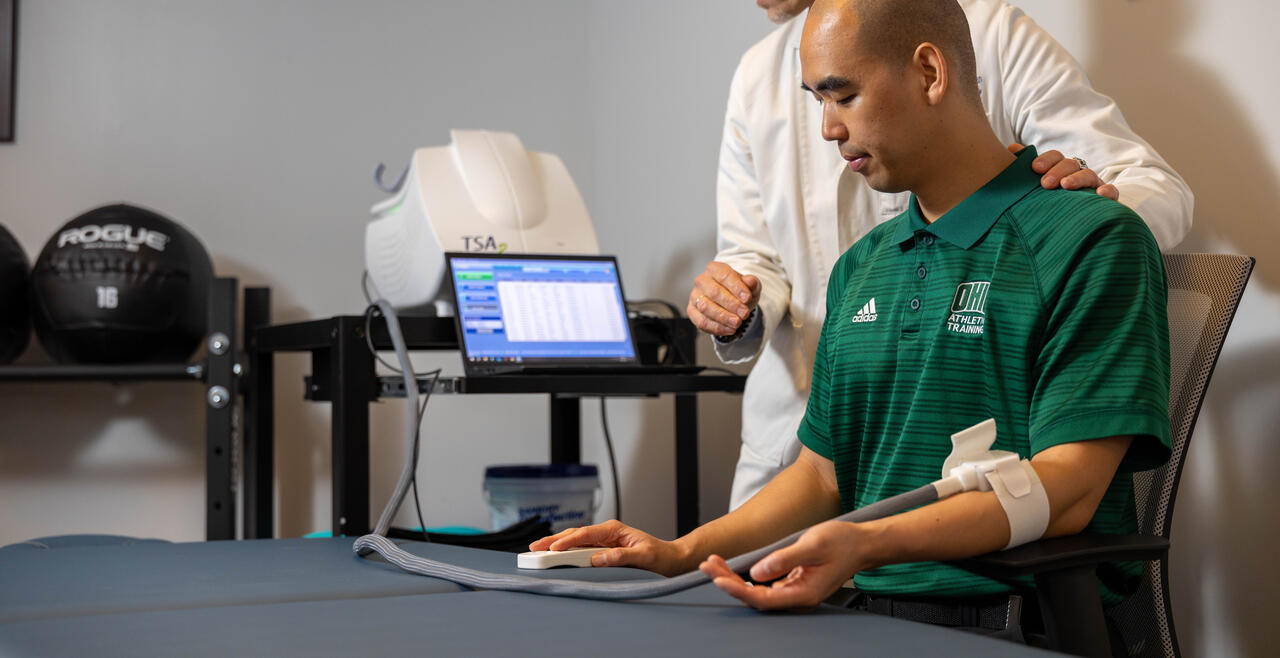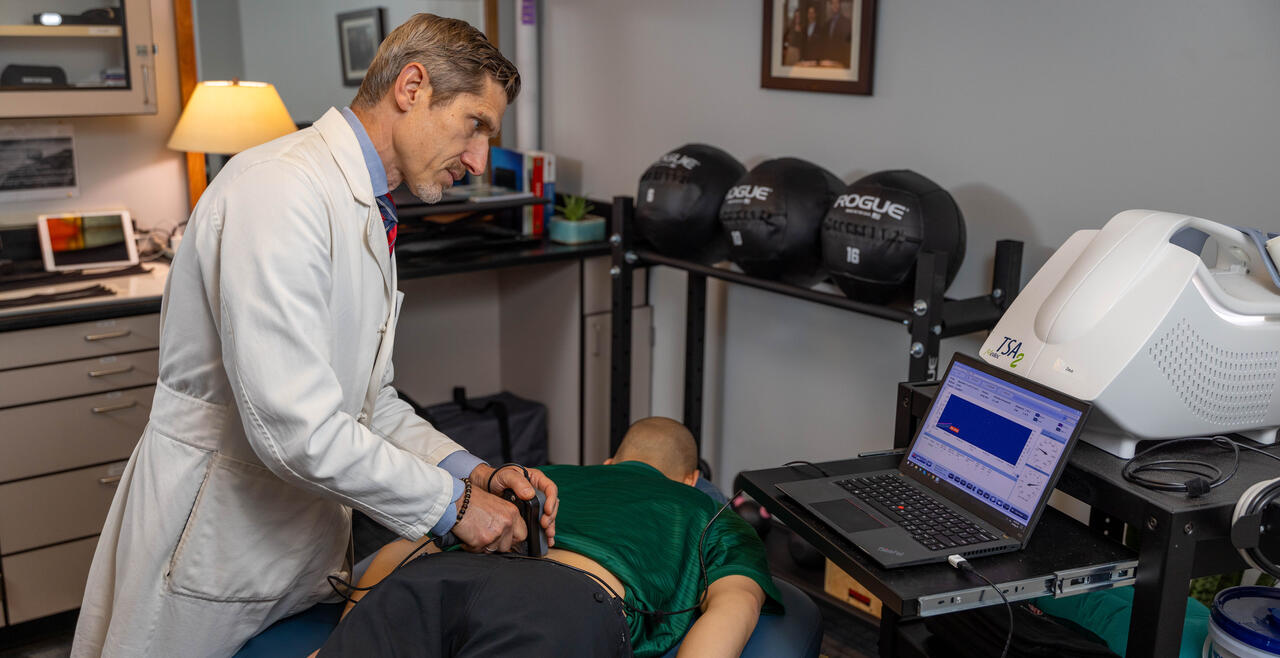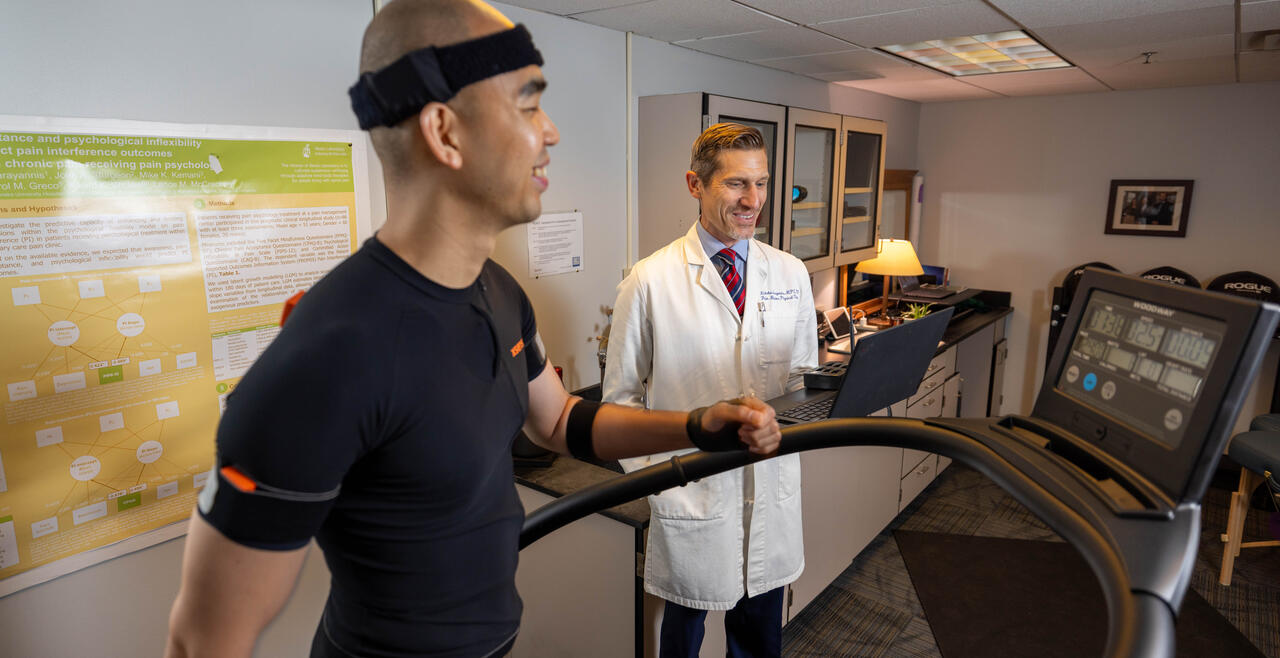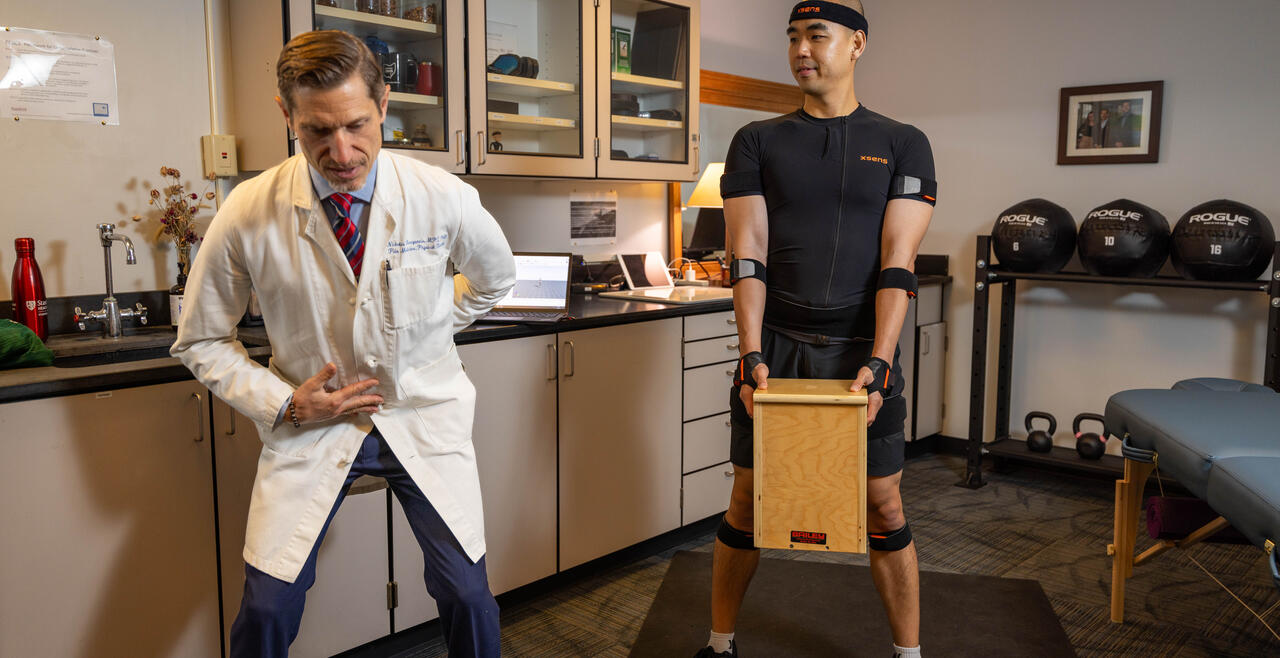Abstract
Objective: (1) Determine a proof-of-concept of an adaptive intervention model that leverages physiotherapy (PT) with an app-delivered wellbeing program (Healthy Minds Innovation, HMI) for individuals with chronic low back pain (CLBP), and (2) Characterize treatment responders based on psychological factors and pain sensitivity profiles.
Design: A pragmatic two-armed, sequential, multiple assignment, randomized trial
Participants: Thirteen people with CLBP
Methods: PT was received for 8-16 weeks augmented with the HMI program. Outcomes included the Oswestry Disability Index and PROMIS Pain Interference, Emotional Styles Questionnaire, lumbar pressure threshold and thermal pain tolerance.
Results: PT+HMI demonstrated less back disability with a large effect size at week 10 (n=5, p-value=0.02, t4=3.83, mean difference 5.20±3.03, Hedges’ g=1.37; 0.20, 2.50) compared to standalone PT. PT+HMI demonstrated less pain interference at week 26 with a large effect size (n=5, p-value=0.03, t4=3.26, mean difference 7.80±5.36, Hedges’ g=1.16; 0.09, 2.18) compared to standalone PT. Improvements in healthy emotionality were evident in the PT+HMI group at week 26 (n=5, p-value=<0.001, t4=-13.70, mean difference=-82.8±13.52, Hedges’ g=-4.89; -8.22, -1.61). Pain sensitivity was not different between treatment responders and non-responders.
Conclusion: Augmenting PT with healthy mind training offers further reductions in back disability and pain interference and optimizes healthy emotionality.




